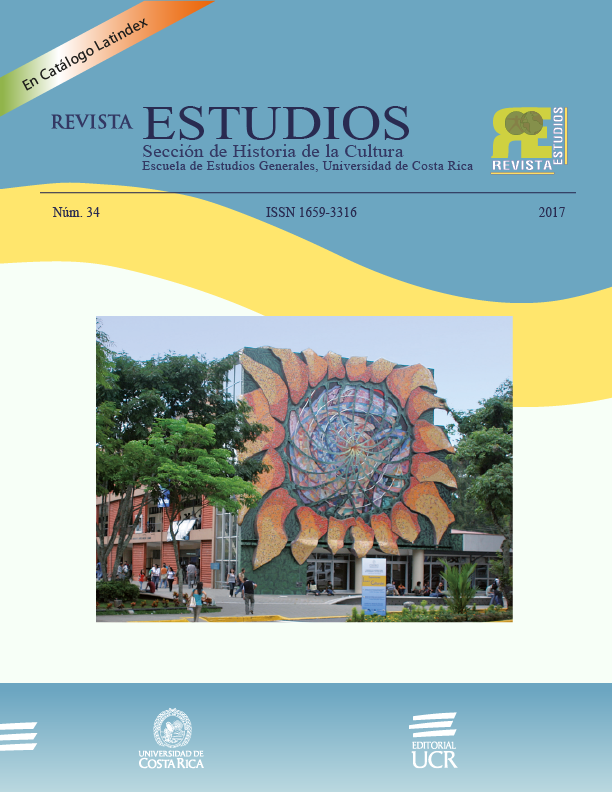Abstract
This novel: Amor en la línea vieja, presents the need of a communication with the world and the environment in a field where family´s relationships have been woven, and the conflicts with those who reject the human being´s dignity. The humanism, that necessary space of reflection, can be read from the perspective of what the accession of vital critical form means. A novel goes further away, from its textual form. It is a way of facing, knowing, debating and considering the world around us. This is why the fundamental axis advocate in this novel of Walter Rojas Pérez, allowed us to establish a discussion about the meaning of humanism, the academic task, the approach of texts and the reflection of space in the classroom as a priority.
References
Espinosa Brilla, Dina (2015). “Los “Estudios Generales” en la Universidad de Costa Rica. Acercamiento conceptual y retos actuales, en Humanismo y sociedad. Estudios regionales y experiencias de caso en Centroamérica. Nicaragua. Editorial Universitaria UNAN-León. Páginas 3-31.
Argüello, Carlos Luis (1986) El mundo de Juana Torres. San José, Costa Rica: Editorial Costa Rica.
Fallas, Carlos L. (2013) Mamita Yunai. San José, Costa Rica: Editorial Costa Rica.
Marín, José (2005) El Infierno Verde. San José, Costa Rica: Editorial Estatal a Distancia
Rojas Pérez, Wálter. (2007). Amor en la Línea Vieja. San José. Editorial Porvenir

